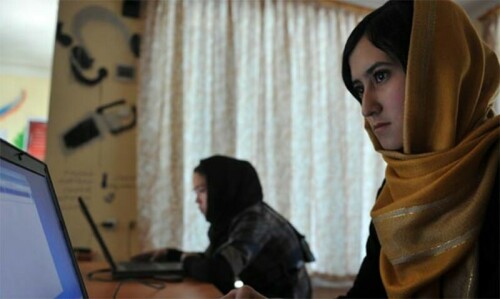SCIENCE & TECHNOLOGY

Islamabad: Women’s involvement in the digital economy and technology use remains critically low in Pakistan, according to a report released by the Pakistan Telecommunication Authority (PTA) on Thursday.
The report, citing findings from the Global Gender Gap Report 2024, Mobile Connectivity Index 2023, and the Inclusive Internet Index, emphasized that Pakistan ranks among the lowest countries in terms of gender parity and digital inclusion.
Key Statistics
The PTA report shed light on several barriers contributing to this divide:
- Digital Access Gap: Globally, 327 million fewer women than men have access to smartphones and mobile internet, as per the Organisation for Economic Co-operation and Development’s ‘Bridging the Digital Gender Divide’ report.
- Pakistan’s Internet Usage: Internet penetration remains below 40% despite a 35.9% increase in users from 2021 to 2022.
- Social Media Gender Imbalance:
- Facebook: 77% male, 23% female (out of 60.4M users)
- YouTube: 72% male, 28% female (out of 71.7M users)
- TikTok: 78% male, 22% female (out of 54.4M users)
- Instagram: 64% male, 36% female (out of 17.3M users)
Challenges Identified
Women in Pakistan face numerous obstacles that hinder their participation in the digital space, including:
- Limited digital literacy.
- Restricted access to financial services, with 25% of adult women lacking CNICs.
- High costs of devices and broadband.
- Safety concerns and patriarchal controls.
- Scarcity of local content tailored for women.
Government Response
To address these issues, the PTA developed the Digital Gender Inclusion Strategy in collaboration with the Ministry of Information Technology and Telecommunications, with support from UNESCO Pakistan. The strategy outlines an accelerated action plan to remove barriers to women’s mobile access and set measurable outcomes to bridge the gender gap in technology use.
The PTA’s initiative is a significant step toward promoting equitable access to digital spaces for women in Pakistan. However, experts emphasize that achieving meaningful progress requires multi-sectoral collaboration and a strong focus on education, safety, and affordability.




